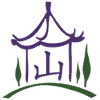This article is the second in a 3-part series about Traditional Chinese Medicine
Welcome back! In the last article in this series we discussed the theory of Qi, the animating force of the body and its relationship to the natural world, and how it relates to the practice of acupuncture. Another well known and highly effective practice of Traditional Chinese Medicine is the prescribing of Chinese Herbs.
To understand how Chinese herbs balance the individual we need to introduce another concept the Chinese have held for centuries, that is, the theory of Yin and Yang. Everything has its opposite, and for up to be up, there must also be a down. Similarly, all forces of nature, the same that compose your body are divided and understood as a play of opposites. How this manifests in you is through a heating and cooling function. Think of it this way: your body has an air conditioner (Yin) and a heater (Yang) running at all times. If you are not in a state of disease one balances the other and you feel perfectly fit and neutral in temperature. Congratulations, your Yin and Yang are balanced! But if you suddenly start feeling hotter and sweat more often, what has happened? One of a few things has occurred; something has turned your heater on high, shut your air conditioner off, or both. In the case of a broken air conditioner, you can try all day long to lower the heater but the real problem is that your Yin/cooling element isn’t working to balance the heat. Recognizing this, the skilled practioner of Chinese medicine will prescribe herbs that strengthen your Yin and bring you back into balance. Or what if amidst the hot summer heat you find yourself particularly hot, thirsty, and irritable. We might say you are suffering from excess heat and suggest you eat some watermelon, a moistening and heat clearing food that will bring you back into balance. In this example you might have been a little dehydrated and sun kissed from a lazy day at the coast and the cooling actions of the watermelon is perfectly suited to harmonize Yin and Yang.
A few things distinguish Chinese herbology from the familiar Western herbs lining the shelves of your local health food store. Both Western and Eastern forms of herbology often utilize the whole plant part in its natural form to treat disease. The science of using Chinese herbs however relies heavily on combining herbs into a formula in which different plant parts complement one another. Although there are prepared pill forms of Chinese herbal supplements that can help a great many people, the finer art involves delicately choosing several herbs that perfectly fit your healing needs. This act of customizing speaks to the holistic nature of Chinese medicine, oftentimes with two patients presenting with similar symptoms receiving quite different herbal prescriptions. This makes sense when you understand that the reason why two people may have a cold, for instance, are vastly different and need to be treated accordingly. The first person has chills and a headache and they would benefit most from herbs which are warming in nature to treat their cold. The second person has a slight fever and a sore throat and would likewise do best with cooling herbs.
Another important reason to combine herbs into a formula is to counteract any side effects. Although Chinese herbs are fairly safe and have a great track record, there are of course some precautions an experienced herbalist must take. For example, Ma Huang (ephedra), an herb that has received so much media attention, is traditionally prepared a certain way and alongside other herbs that balance any undesirable effects. This is the beauty of having many hundreds of years of collective experience and observation to draw upon. Ma Huang is a safe and effective herb used to treat colds when prepared in the proper way; it was never meant to be used for weight loss.
Whether for a simple cold or some chronic condition, Chinese herbs are a time-tested way to balance Yin and Yang. Stay tuned for the final article in this series when we will discuss the ancient art of qigong.
